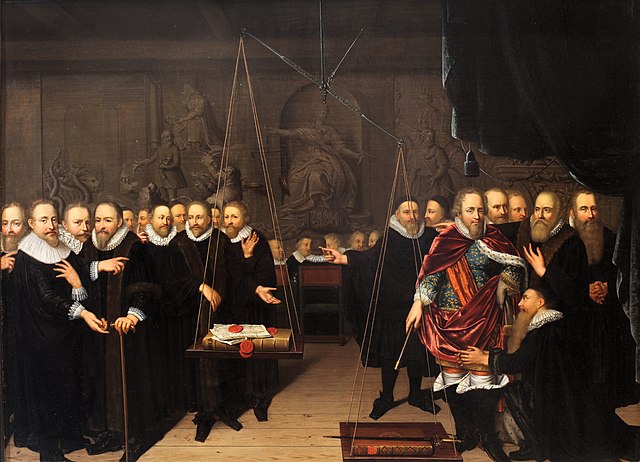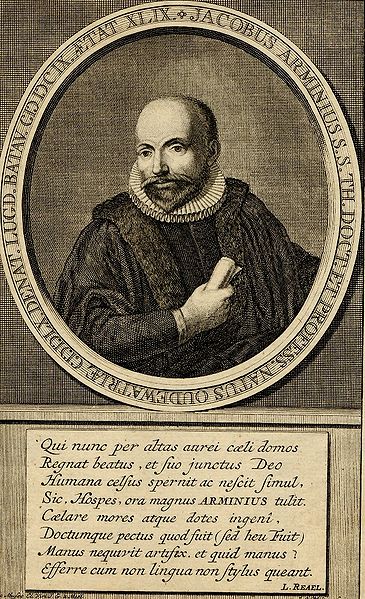The Remonstrants is a Protestant movement that split from the Dutch Reformed Church in the early 17th century. The early Remonstrants supported Jacobus Arminius, and after his death, continued to maintain his original views called Arminianism against the proponents of Calvinism. Condemned by the synod of Dort (1618–1619), the Remonstrants remained a small minority in the Netherlands. In the middle of the 19th century, the Remonstrant Brotherhood was influenced by the liberal Dutch theological movement.
Allegory of the theological dispute between the Arminianists and their opponents by Abraham van der Eyk, 1721. Remonstrants can be seen on the left, while their Dutch Reformed opponents can be seen on the right. The scales shows the Calvinist cause as heavier than the Arminian one, but it has a sword on it. The sword symbolizes state support granted the Dutch Reformed Church by the Republic.
Remonstrant church of Friedrichstadt, Germany
A Remonstrant church in Groningen, Netherlands
Jacobus Arminius was a Dutch Reformed minister and theologian during the Protestant Reformation period whose views became the basis of Arminianism and the Dutch Remonstrant movement. He served from 1603 as professor in theology at the University of Leiden and wrote many books and treatises on theology.
Jacobus Arminius (1620) by David Bailly
17-century portrait of Arminius from the Dutch portrait collection of the Andover-Harvard Theological Library, Harvard Divinity School. From an engraving by J. C. Philips and J. G. Meet.
Memorial stone for Jacobus Arminius at St. Peter's Church, Leiden.






